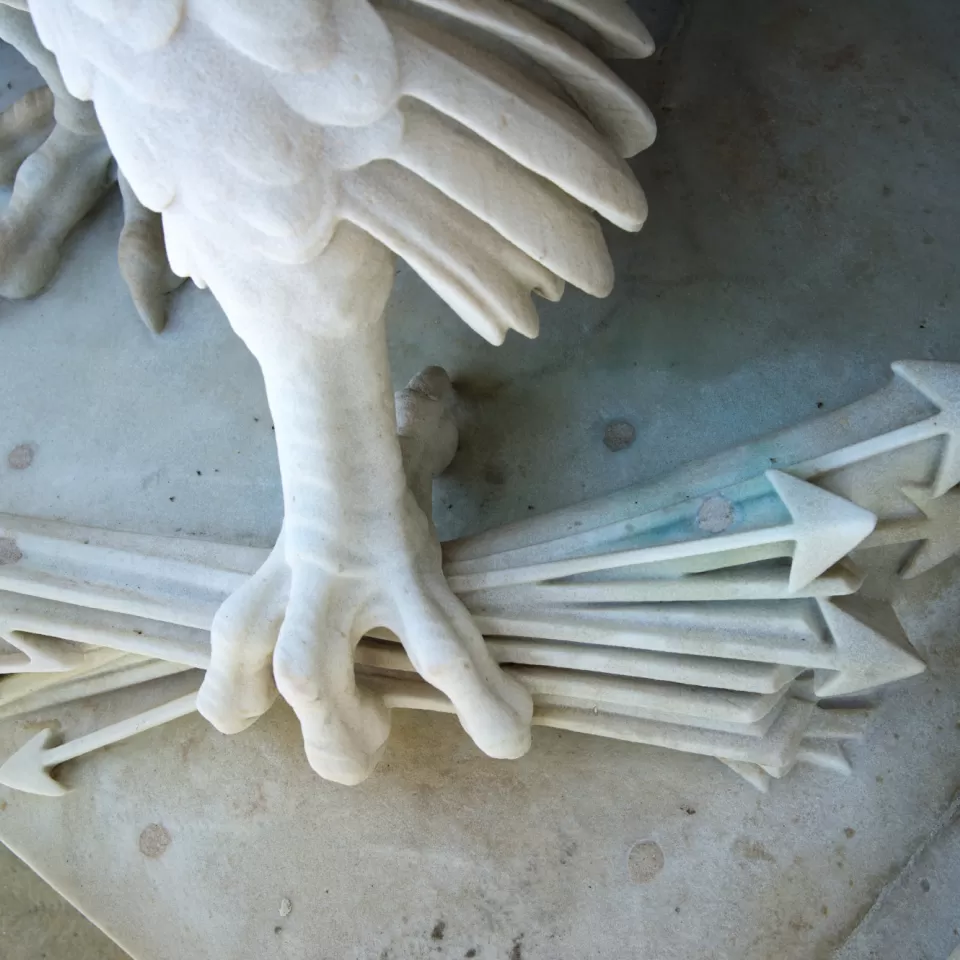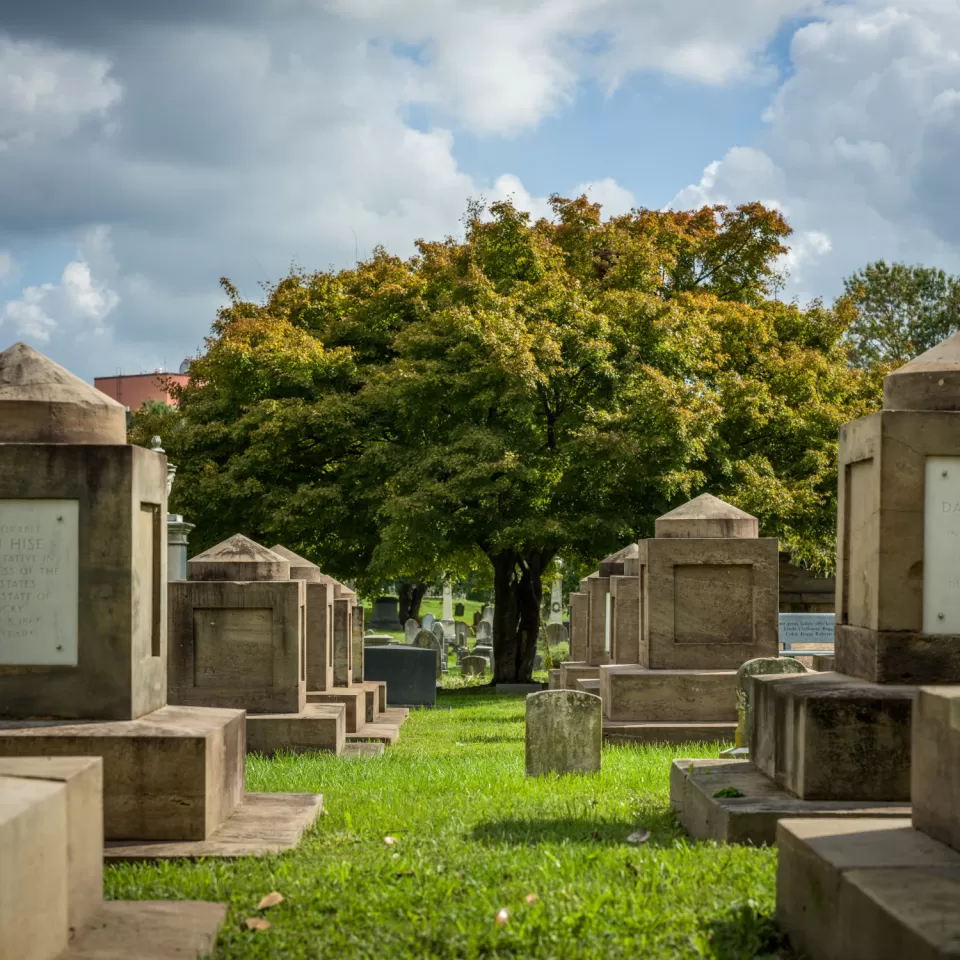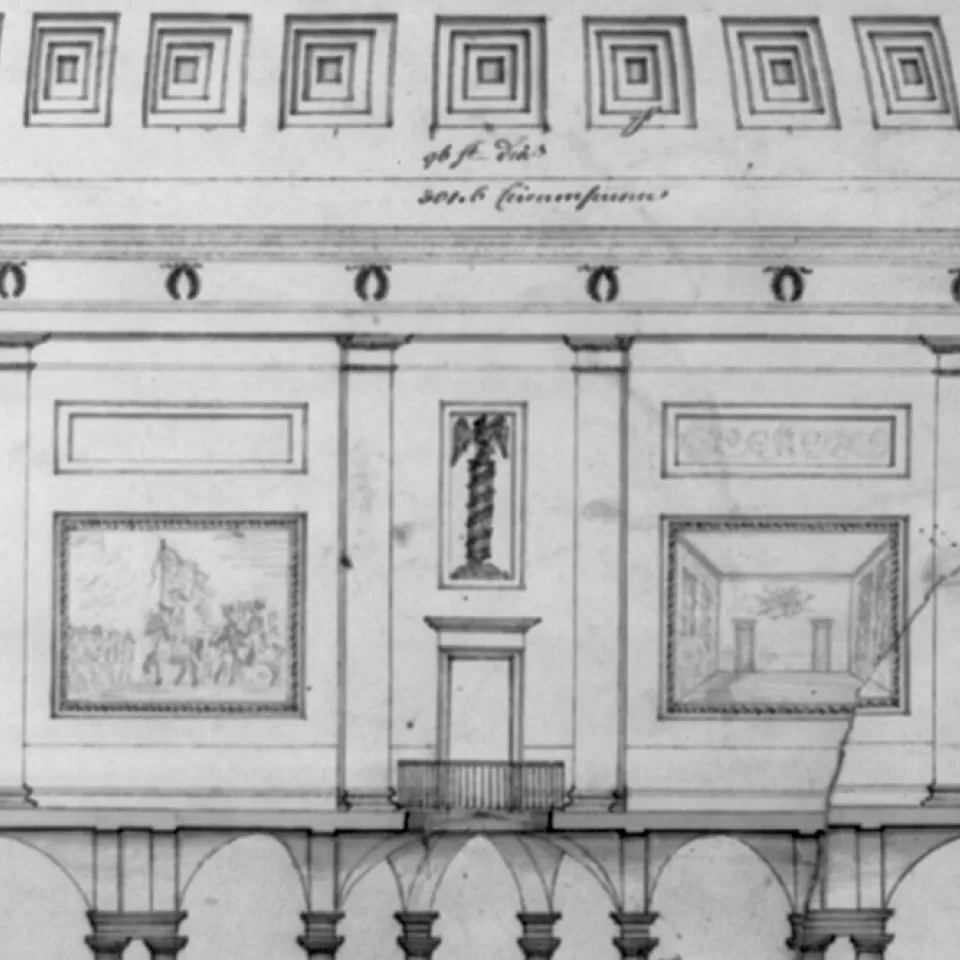Our Stories
Recent Articles
History & Discoveries
A Hallowed Figure in American Art and Culture: the Bald Eagle
The bald eagle is painted, sculpted and carved throughout the Capitol campus. Its white head, wide wingspan and gnarled talons are ubiquitous.
History & Discoveries
Unearthing Capitol Hill's Buried History
Visit Congressional Cemetery and discover the many connections the Architect of the Capitol has to this hallowed ground.
History & Discoveries
The U.S. Capitol Rotunda: Celebrating 200 Years as the Heart of American Democracy
The Rotunda was completed under the direction of Charles Bulfinch by the time of the visit of the Marquis de Lafayette in October 1824.
History & Discoveries
The Liberty Cap: Symbol of American Freedom
The 2024 Olympic mascot is a conical cap, the Phryge, a French symbol of freedom, but it symbolized freedom in the United States before the French adopted it.










Comments
Neat article. The duck ramps are interesting. Thanks, Erin.
Dear Humanitarian, thank YOU for the wonderful ramp. For the momma and her baby ducks. Praying for a more humane world of humans!
Awww. This was a very kind act. Great job!
I'm writing to say that I think the duck ramps are fantastic and so glad that you're looking out for the ducks. I'm sincerely happy to see my tax dollars being spent on a project that takes care of the wildlife around the capitol and fully support more projects like duck ramps!
How wonderful! As the title of the children's book states... you built ramps to : Make Way for Ducklings! _x000D_
a wonderful rest from politics! Make way for Ducklings!!!
Erin, thank you and everyone involved in this worthwhile and life-affirming project. You have demonstrated the heart and soul that too often is missing in D.C. You made my day.
Thank you for taking the time to do this! I've seen similar ones (but not quite as nice) in some parks in London. It is refreshing to see some compassion at work.
While we live in NC, if you decide to take up donations for more ramps please contact us, I'll be happy to help out the ducklings. I hope you share the plans with other muni's that have similar situations.
What a wonderful use of tax dollars, and what a clever solution to this problem. This was delightful to read.
The greatness of a nation can be judged by the way its animals are treated. - Mahatma Gandhi_x000D_ _x000D_
Aw. Thank you for doing this.
Add new comment